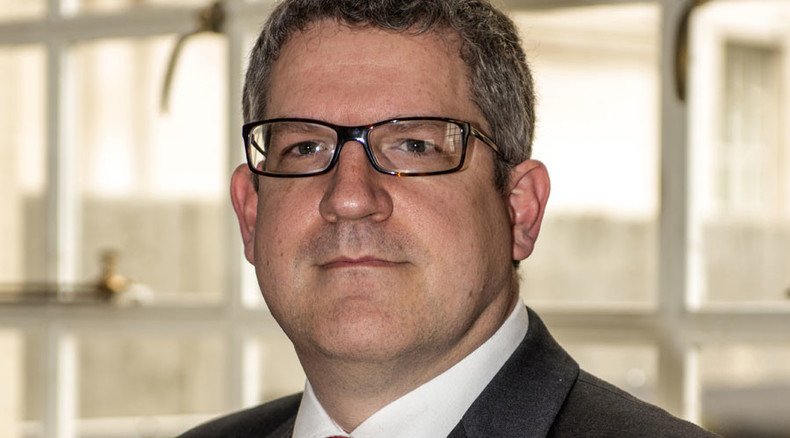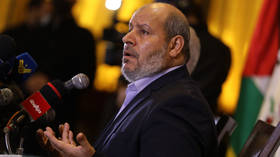3,000 domestic extremists plotting to attack Britain – MI5 chief

MI5 and counter-terror officers are screening more than 3,000 domestic Islamic extremists willing to conduct attacks in the UK as the government prepares to introduce sweeping new snooping powers.
British men and women, some of whom are in their teens, are being radicalized in a matter of weeks, security sources told the Times on Thursday.
The threat of domestic terror attacks was revealed after Andrew Parker became the first MI5 director-general in the agency’s history to offer a live interview to a broadcaster.
Intelligence officials foiled six plots in the past 12 months alone, he told BBC Radio 4 on Thursday, calling on internet firms to assist UK authorities in their fight against terrorism.
MI5 chief wants more powers for spies. He wants *your* browsing, calls & texts handed over http://t.co/Tj0ZDATQB7pic.twitter.com/ceBBx021JS
— RT UK (@RTUKnews) September 17, 2015“Most of the people who try to become involved in terrorism in this country are people who were born and brought up here, have come through our education system, and have nonetheless concluded that the country — their home country and the country of their birth — is their enemy,” Parker said.
Investigators say young Muslims who suffer from mental health issues are particularly vulnerable to grooming. As part of the government’s counter-extremism Prevent program, the NHS has full time staff dedicated to identifying signs of extremist behavior in patients.
Fears over the radicalization of vulnerable youngsters have soared in recent months, with growing numbers of students from Britain traveling to join terror groups in Syria and Iraq. Over 50 percent of Muslims who are on terror watch lists are based in London, particularly in the capital’s west and east, security sources say. Other focal points include the West Midlands, Manchester and the southeast.
MI5 chief calls for greater powers and creates a Snoopers' Charter crush http://t.co/MEJsmSpI4R feat @LozKayepic.twitter.com/sWLQuf7GHq
— The INQUIRER (@INQ) September 17, 2015Recent analysis of jihadist activity in Britain indicates the number of potentially violent suspects being monitored by authorities has soared by more than 50 percent since 2007, when intelligence agencies were monitoring a list of 2,000 people deemed to be active supporters of Al-Qaeda.
Following the rise of Islamic State (IS, formerly ISIS/ISIL) militants in Syria, this number has risen rapidly since 2013. Security sources say most of those under suspicion have not traveled to Syria, but are deemed to have fallen prey to the influence of IS’ online propaganda.
Roughly 1,000 Britons are believed to have joined jihadist groups in war-torn Syria. While 300 have returned to Britain, a further 70 have died fighting in Syria and Iraq since 2011.
Parker’s BBC interview comes just weeks before the Conservative majority government is set to introduce its investigatory powers bill. The legislation will outline intelligence agencies’ scope and powers in the UK, while proposing more rigorous oversight of their work.
The government claims the bill, otherwise known as the “snooper’s charter,” has been designed to protect citizens’ right to security in an age of global terrorism and big data. However, campaigners are deeply concerned about its privacy rights implications.
Britain trusts its spies. Concerns about 'snoopers charter' is that it gives spying powers to the police, who cannot be trusted with them.
— Fraser Nelson (@FraserNelson) September 17, 2015Labour MPs, trade unionists and human rights campaigners are calling on the government to introduce judicial warrants to provide independent scrutiny of surveillance activities in the UK. They are also demanding the state’s Intelligence and Security Committee adopt the same selection methods and powers as a regular parliamentary committee.
While these proposals have been backed by proponents and opponents of mass surveillance alike, Home Secretary Theresa May has rejected them.
Earlier this week, May invited a number of leading US tech giants and UK telecoms providers to discuss the legislation and seek their support in implementing it.
The legislation is expected to include powers that will compel firms to store users’ browsing history. It could also require companies to give police and intelligence officers’ access to the data.
However, demands that tech firms store clients’ browsing history are futile if the communications are encrypted, a measure which is becoming increasingly common in the world of online services.
Internet giants such as Facebook, Twitter and Google offer secure connections as a matter of policy, while in June the White House unveiled plans to push all federal websites to follow suit.
Speaking on Thursday, Parker said MI5 welcomes the government’s so-called snoopers’ charter.
“It’s important that from time to time legislation is updated so that we’re operating modern, straightforward law that describes transparently and as fully as it can what sort of thing MI5 does these days,” he said.
However, he warned the new legislation will not win the battle against terrorism. While Parker acknowledged the bill would help in identifying suspected terrorists, he said accessing their detailed plans has never been so difficult.













